Cards In This Set
| Front | Back |
|
Nationalism can broadly be defined as the belief that the
nation is the central principle of political organisation. As such, it is based
upon two core assumptions; first humankind is naturally divided into distinct
nations, and second, the nation is a political community in the sense that it
is the most appropriate and perhaps only legitimate, unit of political rue.
There are disagreements whether nationalism is a doctrine or ideology. The
doctrine of nationalism is the belief that all nations are entitled to
independent statehood, suggesting that the world should consist of a collection
of nation states. This doctrine may, in turn, be reworked or reinterpreted when
it is absorbed into one of a number of political ideologies. However, if
nationalism is regarded as an ideology in its own right, it is seen to
encompass a diverse range of forms; political (liberal, conservative,
right-wing, socialist, anti colonial) cultural and ethnic.
A nation is a psycho-political construct, a cultural
entity, a collection of people with a shared sense of common heritage, which
may be based on any of a wide range of traits such as history, language,
religion and ethnicity. It differs to the state, for the state is a sovereign
political power over a given territory.
|
 Origins Before the birth of nationalist ideology individuals were simply subjects of a ruler; there was no particular patriotism or national identity. The French Revolution changed this for the people of France; instead of simply being subjects of a monarch they became citizens of a country. Much of Europe was a patchwork of small states, often under the control of larger empires. The Napoleonic wars were instrumental in bringing these small states together to form single nations each with a national identity, particularly in Germany and Italy. This was replicated in Latin America, where new nations such as Peru and Venezuela were created after a successful revolution against the Spanish Empire. Nationalism began to stand for cohesion, order and stability. In the aftermath of the First World War, new nations were created out of defeated Germany and Austria, as well as parts of Russia. These included Hungary and Poland. In the second half of the 20th century the decline of western colonial power in various parts of the world and the spread of nationalism among indigenous people led to the emergence of new nations as in Africa and Asia. |
 Self Determinism – The nation is the most natural unit upon which to base self determination. Sovereignty is an important aspect of being a nation and should be at the heart of self determination and independence. Groups of people have sought self-determination to free themselves from oppression by a small minority that controls the government and military power, such as the black majority in South Africa which was freed from oppression from the apartheid system of government controlled by the white minority, and the people of Tibet who were absorbed by the force in China in 1951. Other national groups of people have been in the position of not having a country of their own yet sharing common ancestry and identity. This is particularly true of the Jews who created the state of Israel and achieved self determination in Israel. This was the culmination of Zionism , an international political movement that originally supported the re-establishment of a homeland for Jews scattered all over the world following Diaspora. After the holocaust, pressure grew for international recognition of a Jewish state and in 1948 Israel was created. For Jewish people it marked an end of a millennia of dispersion, the failure of anti-Semitic groups, political organisations and religious factions. It established a safe haven, a country where Jewish people could organise their own defence and establish their own state. Equally nationalists movements have emerged n order to protect sovereignty and self determination. Israel again is a prime example, as are Poland and South Korea. |
 The Organic society is basically the concept of oneness, a notion that binds individuals together and is stronger than individual identity. The German philosopher Georg Wilhem Friedrich Hegel (1770-1831) believed that this was an expression of universal will, something that bound individuals together, seeing themselves as a single entity. Johann Gottfried von Herder (1744-1803), also a German philosopher, believed that the world consisted of national cultures and collectively they represented an organic whole. The German term Volksgemeinschaft (national community) describes the factors that bring people together so that they may consider themselves a separate community, or as having a shared identity. These factors could include institutions, history, language and national symbols. An even more radical form of nationalism was used by Mussolini and his fascists in Italy to create the idea that individuals interests had to be sacrificed in favour of the nation. |
 Independence- For more nationalists independence is a key objective. Whilst some Welsh nationalists want independence, most are more concerned with retaining their culture and language. Northern Irelands is more complicated, as there are strong unionists’ groups that want nothing to do with independence. They also wish to defend their culture and affinity with Britain. On the other hand there are the republican who wish to severe the links between Britain. Both groups could be considered nationalist. The concept of British nationalism is frequently viewed by Welsh, Scottish and Irish nationalists as a front for English cultural and political dominance. In most other cases around the world, however, nationalists movements do want independence. Some desire it because they are still dominated by an imperial power; others believe it is necessary in order to ensure their self-preservation; and others desire independence to avoid the risk of being dominated by supranational bodies such as the European Union. Countries that have come to rely on supranational bodies, such as the World Trade Organisation, the International Monetary Fund and the World Back, also view their independence as being threatened by these bodies. In return for financial aid they have to surrender to a degree of economic freedom. Such countries include Tanzania, Indonesia and Argentina. Many of the nationalists in these countries believe the United States is behind an apparent threat of independence view this as a form of economic imperialism. |
 Solidarity – a shared national identity and sense of solidarity with co-nationals. Nationalism legitimates an identification with, and preference for, one’s own people or nation; in short, it breeds tribalism. |
|
Types of
Nationalism
Liberal nationalists
aim to secure the rights of the individuals and the nation state in which they
live. They contend that a nation has a right to freedom and therefore should
not be imposed upon by another nation. Notable examples include the Young Italy
Movement of Giuseppe Mazzini (1860s Italy), which sought to bring together the
different states in Italy that were then controlled by a number of other countries.
Another example is Scottish nationalism that emerged in the latter part of the
20th century and believed that if democracy were to be fully
established in Scotland then self-determination was a priority. However, since
liberalism espouses individualism and universalism, it ultimately looks beyond
the nation to embrace a form of internationalism, and to support supranational
bodies such as the EU. Liberal forms of nationalism are, therefore, inherently
contradictory.
|
 Conservative nationalists are concerned with the promise of social cohesion and public order embodied in the sentiment of national patriotism. From this perspective patriotic loyalty and consciousness of a nationhood is largely rooted in the idea of a shared past, turning nationalism into a defence of traditional values and institutions that have been endorsed by history. Conservative nationalists were always suspicious of their Liberal counterparts for they did not believe traditional authority should be swept away and order undermine, even if the foundations they wish to preserve were put in place by an external authority. They were also concerned with nation states which comprised of multinational groups; civil war could break out when the imperial power relinquished control. Conservative nationalism in Britain today is represented politically by UKIP who claim British identity is under threat by European integration. |
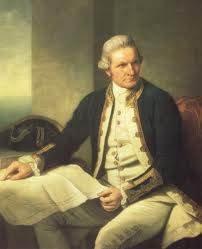 Right-wing nationalists are depicted as the extreme version of conservative nationalism and their beliefs are exemplified by the following three examples; Imperialism – This is the creation of an empire as part of a country’s national interest and destiny. This reflects competition between nations for superiority and access to economic resources. Notable examples are Britain in the 19th century, Japan in the 1930s and the Soviet Union in the 20th century. Expansionism- This is an attempt by a country to spread its political control over neighbouring countries and to ensure that they have dominant influence in a region. Recent examples include China, Russia and Serbia. These two forms of right-wing nationalism are wholly at odds with the liberal form, given their aggressive, militarist and expansionist nature, Anthony D Smith calls them “a profound attack on the whole national ideal”. Xenophobia – A suspicion of foreigners and a desire to maintain a clear national identity. This would include attempts to ensure cultural uniformity and resist immigration. There have been notable examples in France, Austria and Holland. |
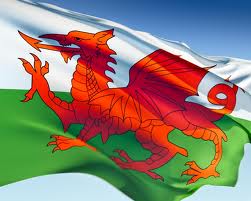 Cultural nationalists wish to preserve a distinct culture, free from any threat of a more dominant culture that threatens to overwhelm it. A prime example is welsh nationalism. The welsh nationalists are more interested in limited autonomy than sovereignty. A more extreme version is known as Volkism, which is more radical and can often lead to conflict. It was particularly obvious in Germany in the 1930s to 1940s, where they believed in race superiority, a sense of historical destiny and used nationalism to justify expansionism. Zionism can also be described as Volkism, as it seeks to ensure that Israel remains in Jewish hands. |
|
Post-colonial nationalists create a directed and coherent opposition to imperial
power, based on social unity and national identity. Many newly independent
states are actually authoritarian, as the boundaries of those states are often
determined in an arbitrary way and, therefore, incorporate multicultural
groups, such as different tribes and racial groups. Without an authoritarian
government many of them have collapsed into civil war (such as Uganda and
Ethiopia). Others have become one party states, such as Zimbabwe and Tanzania.
Others have become socialists states.
|
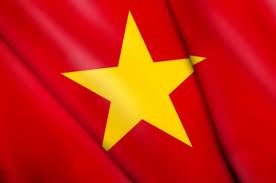 Socialist nationalists aim to create solidarity, national purpose and unity through justice. Socialism is used in conjunction with nationalism to underpin independence and self-determination and to distance a nation-state from the former imperial and capitalist power. Countries that have been liberated from former powers and created socialists states include Zimbabwe and Vietnam. |
|
Racial nationalists focus on ethnic identity. Hitler for example, based
his racist world view on theorists such as Nietzsche, Count Arthur de Gobineau
and Houston Chamberlain. These theories rested on a hierarchy of races with
German or Aryan people at the top and Asians and Africans at the bottom. Also
central was the purity of the nation’s bloodline. Retaining purity would give
strength and will. Not all nationalism based on racialism has this necessarily
sinister background. The Organisation for African Unity recognises that
countries in Africa are based on ethnic groups, that they should all be treated
equally and that there should be mutual respect and peace.
|
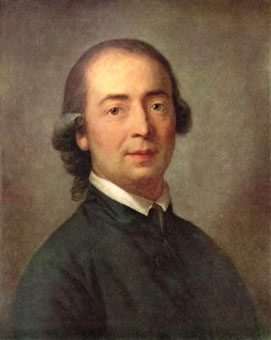 Theorists - Johann Gottfried von Herder (1744-1803) became the leading figure of the Strum und Drand (storm and stress movement) which focussed on culture and language. At the time the area of Europe that we now know as Germany was a jigsaw of tiny states. He believed that culture was transmitted from one generation to the next through language and that nationality was a key component of language – “the best culture of people cannot be expressed through a foreign language”. He focussed upon cultural independence and how it should be freed from the domination of other cultures. To him nationalism was all about the restoration and preservation of culture, as well as state power. His thoughts can be equated to Welsh nationalism as it aims to preserve its countries history, culture and language. |
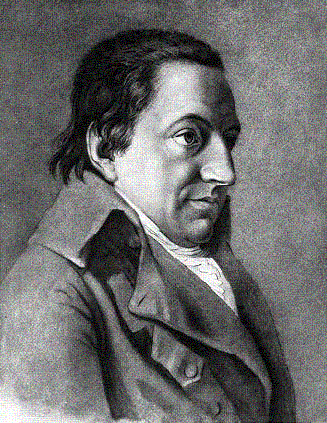 Johann Fichte (1762-1814) argued that language not only denoted a distinctive nation and culture but should also be the basis for political organisations: state boundaries should conform to linguistic boundaries. Fichte believed some languages, pure living languages unpolluted by foreign words and still connected to their original roots, were superior to others, and that nations that spoke a living language were superior to those whose language was dead. He believed the German language to be just such a living language and, therefore, he saw the German people as possessing superior qualities compared to, for example, the French, whose language and national character had (in his opinion) both been corrupted. |
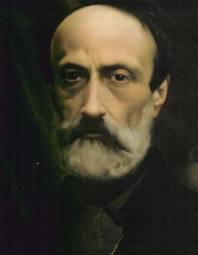 Giuseppe Mazzini (1805-1872) saw nationalism expressed in social solidarity and underpinned by comradeship. In 1831 he was the founder of the Young Italy Movement, a revolutionary nationalist group. Mazzini himself was a liberal republican who believe in self-determination and unity of freedom. He believed that Europe should be composed of just 12 nation-states, built on dominant cultural groups. To him the underlying purpose of nationalism was social progress. In many respects dividing people into cultural groups was rather like the division of labour in capitalism. They could develop their own cultures and have liberty. His influence led to Garibaldi’s unification campaign that resulted in the final unification of the Italian state in 1871. He was ultimately to become an inspirational figure for nationalist movements across South America and Indo-China. “A country is not a mere territory; the particular territory is only its foundations. The country is an idea which rises upon that foundation; it is a sentiment of love, the sense of fellowship which bines together all sons of that territory” |
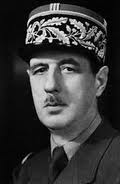 Charles de Gaulle (1890-1970) was a French nationalist who believed in national independence, France should not be reliant on anyone else other than itself for survival and should refuse to be subservient to any foreign power, be it the United States of America or the Soviet Union. In the years after the Second World War, France had insuperable difficulties in hanging onto their colonies in Algeria and Indo-China. Both were in rebellion; French military leaders appeared poised to topple the French civilian government. De Gaulle stepped into form a new government. He rewrote the constitution, brought the fifth French republic and gave himself sweeping presidential powers. Under his leadership France withdrew from NATO in 1966 and retained its own nuclear deterrent. He stood in the way of Britain joining the European Community, because he felt that their membership would not be in the best interests of France. He also supported independence for French-speaking parts of Canada and above all de Gaulle wished to retain an independent status, refusing to allow superpowers to manipulate world affairs. To offset their influence he encouraged relationships with the Arab world, China and nationalists groups in Asia and Africa. “No nations have friends only interests” |
 Julius Nyerere (1922-1999) became the first prime minister of an independent Tanganyika in 1961 and the first president of the renamed state of Tanzania in 1964. He was a major driving force behind the Organisation of African Unity (now known as the African Union). He was an advocate of Pan Africanism, a movement which sought to unify the people of African into one African community. “For centuries we have been oppressed and humiliated as Africans. We were hunted and enslaved as Africans, and we were colonised as Africans. Since we are humiliated as Africans, we can be liberated as Africans”. Nyerere was born into and became the leader of a country which had been artificially created as a former British colony and which was beset by deep divisions on tribal and linguistic lines. Nyerere was determined to created an egalitarian socialist society based on cooperative agriculture. He collectivised farms, launched a mass literary campaign and brought in free education. He focussed on the country’s abilities to become economically self sufficient and not dependent on foreign aid and investment. He called his experiment family-hood, blending cooperation, racial and tribal harmony and self-sacrifice. Nyerere created a one party state, but his policies largely failed. There were tensions between Tanzania and Uganda. In 1978 Uganda attempted to annex the Tanzanian province of Kagera. Nyerere responded by declaring war and ordering his troops into Uganda. Idi Amin’s forces were defeated and he was deposed and expelled from his country, to live in exile for the rest of his life. By the time Nyerere resigned in 1985, Tanzania was still one of the world’s poorest countries. Industry and transport were underdeveloped and agriculture had barley moved beyond subsistence level. A third of the budget was still foreign aid but Tanzania was far more politically stable than its neighbours and has on of the highest literary rates in Africa. |
|
In Opposition to
Nationalism
-It fosters a spirit
of exclusivity and in doing so erects barriers between people that discourage
international cooperation and humanitarianism and encourage national prejudice,
rivalry and conflict.
-It is inconsistent
with pluralism for it is intolerant of diversity and instead encourages
conformity and uniformity by the people, eroding freedom and individual
identity.
-It privileges the
nation over individual freedom and autonomy, submerging the individual in the
nation and forcing the individual to serve and be subservient to the nation.
-We are more inclined
to give aid to our co-nationals than to outsider, even if the latter are in
greater need.
-Nationalism can lead
to bloodshed and political instability because different nationalities are
inevitably intermingled, sharing the same territory. Multinational countries
can only be turned into the nationalist ideal of single nation states through
such measures as war and ethnic cleansing.
|
In Defence of
Nationalism
Roger Scruton in his
essay ‘In Defence of Nationalism’ argued that without a sense of belonging to
our nation, without a love of homeland, then the authority and jurisdiction of
any state will be precarious, with its people not disposed to recognise a
common jurisdiction or to defend its territory collectively. National
traditions, customs, ceremonies culture, religious outlook and values sustain a
country, its people and its state, and without it Scruton believes it would all
disintegrate. David Miller suggested nationality is the main source of communal
solidarity in the world today, and communal solidarity is something that needs
to be fostered in the face of trends to
ever greater social fragmentation and atomisation.
National identity promotes a sense of community and of a common good that is a
necessary counter to tendencies towards individual isolation and the pursuit of
self interest without regards to others.
|
|
Expansionist or
Destructive?
Liberal nationalism is
not expansionist; it does not seek to invade or conquer other states. It does
not perceive itself to be destructive, but rather, liberating, peaceful and
progressive. This form of nationalism is compatible with cosmopolitanism and,
to some extent, with supranationalism.
Conservative
nationalism can be destructive of life. It can also be destructive of
individual rights and freedoms, and of tolerance of cultural diversity, because
its priority is social stability and order.
Chauvinist nationalism
is destructive of liberty, sovereignty and self-determination of other nations,
and also often of the lives of the people, both of other nations and of its
own.
Anti-colonial
nationalism is not expansionist. It seek only to regain freedom, sovereignty
and self determination from exploitative and often oppressive imperialist
powers. It often does take a violent form, if only because imperialist powers
themselves may violently resist eviction. It can, therefore, be destructive of
life. It sometimes produces post-colonial forms of government which are
illiberal and dictatorial in which case it is destructive of individual rights
and freedoms, at least from a liberal perspective.
|
The Future
Nationalism has become an anachronism, falling victim
to its own success. The world is now mainly composed of nation-states;
nation-states are themselves loosing authority as a result of globalisation and
the growth of supranationalism; and ethnic and regional political identities
are displacing national ones.
|



